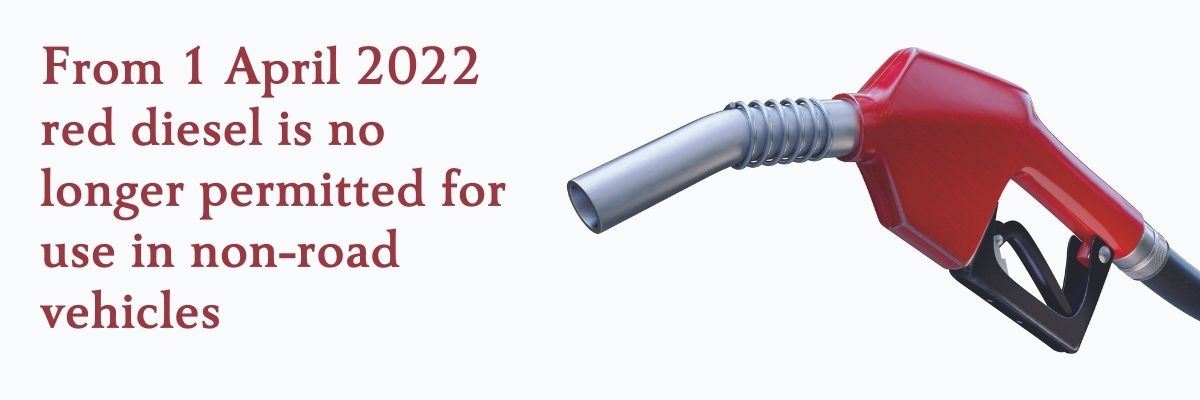Fuelling the Problem – Changes to Red Diesel Use

The Government has announced that from 1 April 2022 red diesel is no longer permitted for use in all non-road vehicles.
From this date, red diesel will be limited for use only in ‘excepted machines’. These are vehicles and machines used for:
- agriculture
- forestry
- horticulture
- fish farming
- cutting verges bordering public roads
- cutting hedges or trees bordering public roads or bordering verges which border public roads
- clearing or otherwise dealing with frost, ice, snow or flooding.
Red diesel is also still permitted for use for:
- passenger, freight or maintenance vehicles designed to run on rail tracks
- marine craft refuelling and operating in the UK
- machinery used on a golf course
- machinery used on land maintained by a community Amateur Sports Club, or
- vehicles used on land occupied by a travelling fair or travelling circus.
Non-commercial premises, e.g. homes and places of worship, may also still use red diesel for heat and off-grid power generation.
Red diesel, also known as ‘rebated fuel’, attracts a reduced VAT rate and significantly less fuel duty than normal or ‘white’ diesel. It contains a red dye so police can easily test for it when they suspect it being used to fuel on-road vehicles.
Up until now, many industries not listed above, such as construction, have legitimately used red diesel to power forklifts, cranes and other machinery which is not used on public roads. Since 1 April this is no longer allowed.
If the change in law affects your business, we hope that you have taken the necessary steps. You should no longer have any stores of red diesel if you are not permitted to use it. If a tank is to be switched from red to white diesel, you should ensure that the tank and lines are flushed out thoroughly to ensure no traces of the marked fuel remain. Since white diesel is a significantly more valuable commodity, you may have concerns about theft which will require additional security measures to be put in place.
The new regulation combined with the current wider increases in fuel prices, means that this law will have a significant cost implication for many businesses. Alongside rising energy costs, supply costs and NI contributions, the timing is no doubt challenging.
Please get in touch if you are concerned about the squeeze on your cash flow, or would like an overview of your financial situation.


